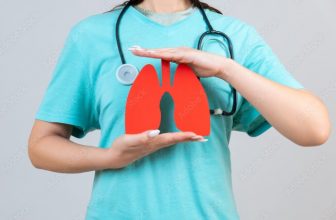
How To Become A Psychiatric Nurse?
Being a psychiatric nurse requires a certain kind of compassion. Psychiatric nurses are the superheroes of healthcare, fearlessly tackling the intricate medical and emotional demands of individuals grappling with mental health challenges. One of the most rewarding aspects of psychiatric nursing is the constant stimulation and variety of patient cases.
What is a Psychiatric Nurse?
Psychiatric nurses, also called psychiatric-mental health nurses (PMHNs) by the American Psychiatric Nurses Association, offer mental health care to individuals and entire communities. They must be well-versed in the fundamental and behavioral sciences, have great interpersonal and communication skills, adaptability, and an openness to various lifestyles.

Psychiatrists care for patients of all ages, including children, adolescents, and adults. They are qualified to treat various conditions, including substance misuse, bipolar illness, schizophrenia, and anxiety.
What Does a Psychiatric Nurse Do?
Psychiatric nurses are meticulous, dependable, and multitaskers. It is crucial to control one’s emotions in the face of adversity, such as while dealing with agitated patients. It helps if you are genuinely curious about expanding your knowledge of medical treatments, medications, and their applications.
Maintaining a healthy work-life balance requires developing effective self-care habits. A good psych nurse must be adaptable and accepting of patients with varying socioeconomic statuses and worldviews. As a psych nurse, you might:
- Evaluate the patient’s condition.
- Provide care per established treatment and nursing care plans.
- Lead therapeutic groups and offer to counsel.
- Provide medication and monitor for reactions and adverse effects.
- Instruct clients or patients in coping mechanisms.
- Collaborate closely with other members of the healthcare team.
- Advanced practice psych nurse practitioners deliver top-notch care in many settings, empowering patients and revolutionizing healthcare.
- Evaluate and identify mental health issues.
- Create and carry out treatment programs.
- Provide primary health care.
- Dispense prescription drugs.
- Arrange and decipher diagnostic tests.
- Provide psychotherapy.
- Provide appropriate referrals.
What kinds of illnesses does a psychiatric nurse treat?
Psychiatric nurses treat many different mental diseases. Psychiatric nurses typically address the following conditions:

Emotional and mental health issues:
Psychiatric nurses frequently see patients with depression and bipolar disorder. Patients with these illnesses frequently experience extreme exhaustion, depression, lack of motivation, and hopelessness. Individuals diagnosed with bipolar disorder may experience episodes of mania, which can result in symptoms such as racing thoughts, difficulty sleeping, and delusions of grandeur.
Illnesses of the mind:
Experience the surreal and unpredictable world of psychosis, where twisted hallucinations can trigger bizarre and dangerous actions in those afflicted. Psychosis is more common in patients with schizophrenia or bipolar disorder. Patients who are addicted to drugs may also experience psychosis.
Disorders of eating:
Eating disorders are commonly characterized by low self-esteem and cognitive distortions, with bulimia, anorexia, and binge eating disorder being the most prevalent types that can coexist.
Disorders of Addiction:
Substance dependence can exacerbate preexisting mental health conditions such as psychiatric illness and depression. The method of treating this illness is nuanced and intricate. Mental health nurses are responsible for addressing addiction symptoms and their underlying causes and treating patients with various mental disorders during a shift.
Where do psychiatric nurses work?
Psychiatric nurses work in many different contexts. Any establishment that offers mental health treatment, such as:
- Assisted living facilities
- Companies that provide behavioral health care
- Centers for Mental Health in the Community
- Medical facilities, including clinics and VA hospitals
- Long-term care facility
- Military hospitals or clinics
- Offices for Primary Care
- Private practices
- Nursing home for the disabled
- Specialized psychiatric or drug abuse hospitals
- State and federal buildings (prisons and other agencies, including the court system – for forensic and other psych nurses)
- Colleges and universities
What makes a successful psychiatric NPs?
Psychiatric nurse practitioners require a sturdy emotional foundation to provide their patients the necessary compassionate and steady presence. These are some traits that are crucial to your career.
Maturity of emotion:
To prevent burnout, you must set healthy boundaries for yourself.
Emotional stability:
To help patients with mental health services concentrate on improving, offering a reassuring, calming presence can be helpful.
Team member:
Working with physicians, mental health care professionals, and other patient care team members is essential for providing the highest quality care.
Strong advocacy abilities:
You will speak up for your patients and assist them in speaking up for themselves.
Caring:
Your warmth, empathy, and caring demeanor can help put patients at rest as mental health care professionals.
How to Become a Psychiatric Nurse?
Here are the following steps to becoming a psychiatric nurse:
Step 1: Accomplish a Nursing Program
You must first graduate from an entry-level nursing program. Embark on a thrilling journey into the world of psych nursing! Experience the profession first-hand by taking part in a clinical rotation, which is offered by most programs. Volunteering in a facility that helps persons with mental health problems can provide one with a better understanding of how to treat these patients.
A two-year program can lead to an associate’s degree in nursing, a three-year program can lead to a diploma in nursing (often hospital-based), or a four-year college or university program can lead to a bachelor’s degree in nursing.
Step 2: Get Your Registered Nurse License
After completing your education, you should sit for the NCLEX (National Council Licensure Examination). The National Council Licensure Examination for Nurses (NCLEX) is a certification test for nurses in the United States and Canada. You can apply for your first nursing position after passing this test.
Step 3: Certify in psychiatric nursing
The American Nurses Credentialing Center (ANCC) offers certification for those who wish to demonstrate higher expertise in their field. The following requirements must be met to receive certification, which is valid for five years: Applicants must possess a valid RN license from any state or territory in the United States or its equivalent from a legally recognized professional body in another nation.
- Has two years of experience working as a registered nurse full-time.
- Must have completed at least 2,000 clinical hours of work in psychiatric-mental health nursing during the previous three years.
- Have finished 30 hours of postgraduate study in psychiatric-mental health nursing within the past three years.
Step 4: Advance as a nurse in psychiatry
Become an advanced practice psychiatric nurse to broaden your practice and increase your income possibilities. The title given to individuals in the field of psychiatric mental health varies by state, with some being referred to as PMHNP-BC and others as PMHCNS-BC.
A master’s or doctoral degree in nursing is required for advanced practice psych nurses. Some nurses receive certification from the ANCC as well. It’s a significant choice to go to graduate school. Be that the National League recognizes your nursing program for Nursing or the American Association of Colleges of Nursing (AACN) (NLN). The (APNA) maintains a national directory of programs that the state can browse on its website.
Which licenses and credentials are required?
A valid RN license in the state where they practice is required for psychiatric nurse practitioners. They must also pass the Psychiatric-Mental Health Nurse Practitioner Board-Certified (PMHNP-BC) exam administered by the American Nurses Credentialing Center after completing their master’s or doctoral degree (ANCC). There are two tests for certification:
Adult psychiatric and mental health nurse practitioner:
Needs a master’s, postgraduate, or doctoral degree from an adult psychiatric and mental health nurse practitioner school.
Nurse Practitioner in Family Psychiatry and Mental Health:
Requires a master’s, postgraduate, or doctoral degree from a family psychiatric and mental health nurse practitioner program. Career opportunity as a Pediatric Primary Care Mental Health Specialist (PMHS) through certification with the Pediatric Nurse Certification Board (PNCB).
Harness your passion for helping children and families by becoming a psychiatric nurse practitioner and gain the credentials to make a real difference in the world of pediatric care.
What education do Psychiatric Nurse Practitioners need to continue their profession?
You must renew your PMHNP certification every five years through the ANCC and state boards.There are two options for recertification for psychiatric nurse practitioners: accumulating 1,000 practice hours or passing the certification exam again. Stay on top of your game and keep your skills sharp! In addition, you’ll need to have completed 75 hours of CNE to keep your RN license active.
What is the Career Outlook for Psychiatric Nurses?
Between 2020 and 2030, the Bureau of Labor Statistics projects a 9% increase in nurse employment. Due to the impending retirement of the baby boomer nurse and the increasing medical needs of the elderly, psych nurses are scarce. More people will likely seek treatment for mental health issues due to rising public awareness of these issues. Mental illness affects over 50 million Americans – one in five adults! With a nursing shortage looming, the demand for top-notch psychiatric care will be greater than ever before.
How Much Does a Psychiatric Nurse Make
The pay of a psychiatric nurse varies by location, employer size, education level, and years of experience. According to Payscale.com, the average yearly salary for a nurse in a psychiatric or substance abuse hospital setting is $67,838, though this number may vary depending on location. According to Indeed, the average annual compensation for a Psychiatric Nurse Practitioner is $141,921, making them one of the most highly paid nurse careers.
Get ready to boost your nursing career and your wallet! Not only can earning a bachelor’s or master’s degree in nursing unlock higher pay, but pay differentials for night or evening shifts, charge duties, and training new nurses can add extra cash to your standard hourly rate.
FAQ’s
How challenging is psychiatric nursing?
It’s challenging. Listening to the stories of people who have endured things you wouldn’t wish on your worst enemy can be moving, and it can be difficult to leave work at work after a day like that.
Is working as a psych nurse a rewarding profession?
Psychiatric nursing is a great profession for aspiring nurses because of its high salary, promising career possibilities, and numerous access points. You know that the patients you care for daily, whether in a hospital or community, are among the most vulnerable.
Are psych nurse positions in high demand?
As the population of the United States grows, so will the need for psychiatric nurse practitioners. The BLS predicts a 52% increase in demand for nurse practitioners from 2020 to 2030.
Why choose psychiatric nursing?
You can keep helping those in need if you pursue a career in psychiatric nursing, which is another good incentive. Those suffering from the long-term mental impacts of this epidemic will continue to be helped by mental health care professionals, who are the true heroes of this pandemic.







